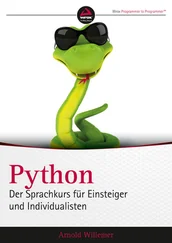Arnold Zable - Cafe Scheherazade
Здесь есть возможность читать онлайн «Arnold Zable - Cafe Scheherazade» весь текст электронной книги совершенно бесплатно (целиком полную версию без сокращений). В некоторых случаях можно слушать аудио, скачать через торрент в формате fb2 и присутствует краткое содержание. Город: Melbourne, Год выпуска: 2001, Издательство: Text Publishing Company, Жанр: Проза, на английском языке. Описание произведения, (предисловие) а так же отзывы посетителей доступны на портале библиотеки ЛибКат.
- Название:Cafe Scheherazade
- Автор:
- Издательство:Text Publishing Company
- Жанр:
- Год:2001
- Город:Melbourne
- ISBN:нет данных
- Рейтинг книги:4 / 5. Голосов: 1
-
Избранное:Добавить в избранное
- Отзывы:
-
Ваша оценка:
- 80
- 1
- 2
- 3
- 4
- 5
Cafe Scheherazade: краткое содержание, описание и аннотация
Предлагаем к чтению аннотацию, описание, краткое содержание или предисловие (зависит от того, что написал сам автор книги «Cafe Scheherazade»). Если вы не нашли необходимую информацию о книге — напишите в комментариях, мы постараемся отыскать её.
Cafe Scheherazade — читать онлайн бесплатно полную книгу (весь текст) целиком
Ниже представлен текст книги, разбитый по страницам. Система сохранения места последней прочитанной страницы, позволяет с удобством читать онлайн бесплатно книгу «Cafe Scheherazade», без необходимости каждый раз заново искать на чём Вы остановились. Поставьте закладку, и сможете в любой момент перейти на страницу, на которой закончили чтение.
Интервал:
Закладка:
There was something else they could not fathom. Something that is evident even now, half a century later, in the tone of voice with which Avram recounts the tale. They could not see that his zeal was the final bastion of his crumbling faith, an attempt to resurrect a shattered will.
Avram lost the job; and drifted into another, more suited to a man who had lost his capacity to feel. He was assigned to a Red Army intelligence unit. His unit was sent to the Prussian border, to newly captured territory in the wake of the army's advance.
Avram interrogated those suspected of collaboration. 181 He knew his job well. He had practised the primitive art of extracting information in the forests of Vilna.
The autumn of liberation gave way to a winter of interrogation.
Avram became captive to the indifferent world of the inquisitor.
His fists were clenched. His jaw set tight. He did his job. It was a job that had to be done. He cross-examined, exposed fabrications, forced confessions.
As for those whom he interrogated? Sometimes Avram registered their terror. Their cries for mercy. In a war waged among civilians there were many losers. Such as the young Lithuanian woman who kept a diary which indicated she had slept with SS officers.
She seemed small and pathetic. She trembled with fean She wore cheap lipstick. Her powdered cheeks could not hide her ageing skin. Her barely audible replies trailed off as she lowered her eyes and gnawed her polished nails.
So this is what it has come to, thought Avram. The front was moving westwards. The Red Army was advancing in triumph, while he was condemned to crawl in the shadows and extract confessions from those who had slept with the enemy.
Avram's unit returned to Vilna where he continued his intelligence work. One by one they found each other, pre-war comrades, childhood friends who had survived. They would meet in the evenings to play cards and exchange their extraordinary tales.
182
Avram was a valued member of this band. As an intelligence officer he had access to stocks of food: rolls of salami, herring, cheese; and flagons of vodka, their `medicine`. His scruples had softened. He agreed to accumulate the precious supplies and deliver them to his comrades.
Avram lay on his dormitory bed. Beside him lay a bag packed with food and drink. In the evening he was to meet his friends. It was a Sunday afternoon in the winter of 1944, and he was engrossed in The Stormy Life of Lazik Roitschwantz, a novel written by the Soviet writer Ilya Ehrenburg. He would remember the exact page, the precise passage, and little else, when he next awoke. The hero of the novel was escaping from Russia to Paris. It would be the last thing Avram would remember for many weeks to come.
Avram awoke six weeks later in a military hospital. The face of a woman entered into his field of vision. As the lens widened he saw her sitting beside the bed. She was wearing a white coat.
Behind her floated orderlies and nurses, a world of white upon white.
She began to question him. Gently. Avram had lost his memory, except for four vital facts, which he clung to with tenacity. He could recite them over and again.
Fact one: he was a partisan.
Fact two: he was a Yid.
Fact three: he was a Vilner.
183
Fact four: his mother and sister had been murdered by the Nazis.
That was all. And for the time being, it was enough, except for the food that was placed beside his bed, as if in reward for his startling performance.
Avram fell upon the food like a famished beast. The questioning resumed; and the four facts persisted. Avram recited them in a monotone: I am a partisan. I am a Yid. I am a Vilner. And my mother and sister were murdered.
The psychiatrist changed tack. She held up a chart with the letters of the Russian alphabet. Avram identified them with ease.
She handed him a book. He placed his cheeks against the paper. He smelt the pages. Ran his fingers over the text. He saw the letters come into focus, the words form; he gathered in the sentences.
Avram had always worshipped books. They were his father's most valued possessions. It was a passion he had transmitted to his son. Their Vilna apartment had been crowded with books. They tumbled off the living-room shelves, lay at random upon the kitchen table, clung to every available space.
Avram can still recall the book the doctor gave him. It was an account of the Spanish Civil War; and it was a wise choice. Not too intimate a subject as to overwhelm, but close enough to his deepest interests to excite his imagination, his love of history and ideas. As he read it, memory, history's indispensable but fragile partner, began to return. Avram lapsed in and out of sleep. He floated between the printed page and his fractured dreams.
184
Through his barely opened eyes he glimpsed the psychiatrist. She stood by the bed with a colleague. "This is an interesting case,"
Avram heard her whisper. "A boy from Vilna. They found him in the streets. Lying unconscious, in a pool of blood. He had a deep gash on his forehead. He was without documents, without arms. All he had as identification was his Red Army coat. He lay in a coma for six weeks from which he has lust emerged. He is still suffering from amnesia.
"Is your name Avramel?" the visiting doctor asked.
"Yes," the patient replied. And was startled into a sudden remembrance of himself. Of a child called Avramel. Avramele.
Names first heard in the cradle, within a trusting world. "Is your family name Zeleznikow?"
"Yes."
"And you had a sister called Basia?"
"Yes."
"And a father called Yankel?"
"Yes."
"And a mother called Etta?"
"Yes."
"And you lived in an apartment at Benedictinski 4?"
"Yes."
"I knew them all. My name is Dr Baranowski. I sometimes visited your house. Your father was a friend of mine. I knew you when you were a child."
Etta. Yankel. Basia. Avramel. A family called Zeleznikow. An apartment at Benedictinski 4. The doctor had touched on 185 the intimate core. A samovar bubbled, centre table. Shadows played upon the walls. Yankel, Etta and their guests sipped brandy and tea. They mapped out missions and talked of ambitious schemes.
Avramel lay in bed, in the adjoining room, and was lulled to sleep by the babble of voices. They argued late into the night, enveloped by warmth and light.
Avram glimpsed familiar faces, shimmering white. And beyond them, he saw the white coat of the doctor who stood above hint. She was smiling. At Avram, Avramel, Avramele. A boy with a name, an address, a past. A boy with a father and a cradle and a mother singing: Ai-le-lu-le. Ai-le-lu-Ie. Sleep my child in peace.
Fortunate is he who has a loved one. Ai-le-luIe-lu. Blessed is he who has a loved one. Ai-leiu-le-lu…
Avram was discharged from hospital weeks later He reported back to intelligence headquarters. He asked for his delayed wages and was told that, in his absence, the cashier had taken his three months of pay. She was involved in an affair with a Red Army officer, and had become pregnant. She needed an abortion. She was desperate for the money.
"Forget it," advised Avram's commanding officer `If I report her, she will be sent to Siberia, and you will not regain your pay anyhow. She will repay you with sexual favours, if you wish.
Screw her and forget it. We still want to keep you. You have a talent for intelligence work. You are an experienced interrogator.
186
"We will send you to the Crimea for a rest. And from there you will be sent to a special school in Moscow. We will put your skills to good use."
"It sounded okay to me," Avram tells me. "I signed the paper. I didn't care. Nothing mattered to me. It did not seem important.
Two days later I was approached by a Red Army captain. He was a member of my intelligence unit.
Читать дальшеИнтервал:
Закладка:
Похожие книги на «Cafe Scheherazade»
Представляем Вашему вниманию похожие книги на «Cafe Scheherazade» списком для выбора. Мы отобрали схожую по названию и смыслу литературу в надежде предоставить читателям больше вариантов отыскать новые, интересные, ещё непрочитанные произведения.
Обсуждение, отзывы о книге «Cafe Scheherazade» и просто собственные мнения читателей. Оставьте ваши комментарии, напишите, что Вы думаете о произведении, его смысле или главных героях. Укажите что конкретно понравилось, а что нет, и почему Вы так считаете.












